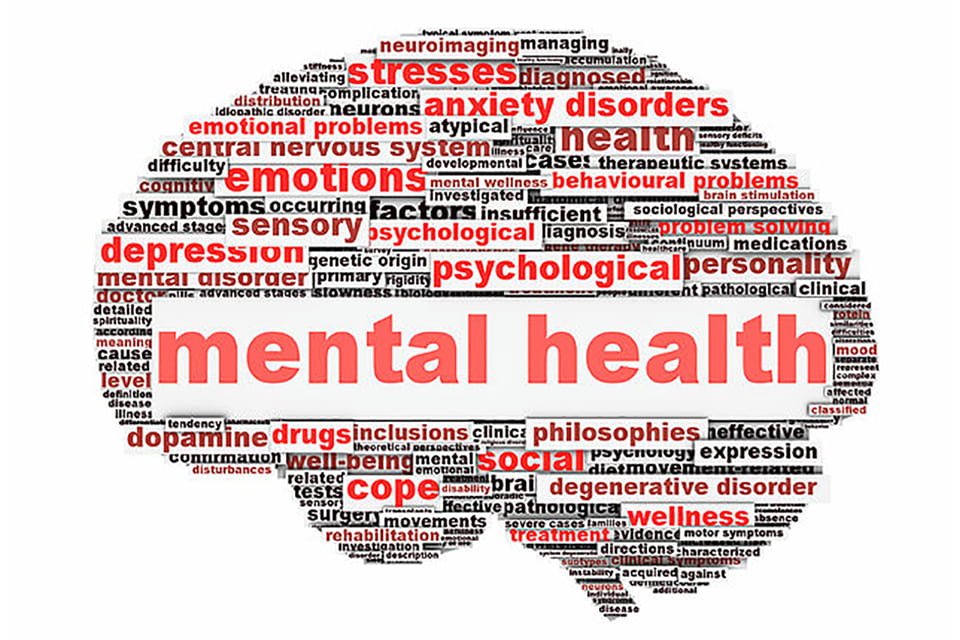Recently, the President of the Association of Psychiatrists in Nigeria, Taiwo Obindo announced that more than sixty million Nigerians are suffering from various degrees of mental illnesses or disorder. According to him, only ten percent of those affected has access to appropriate health care. Experts say there has been significant increase in mental health challenges over the years and mental health disorder is becoming the leading cause of disability and poor life outcome in youths and young people.
Today in Nigeria, mentally challenged people are roaming or occupying major roads, streets, markets and strategic locations, some of them stark naked and often eat from dustbins or seek alms from public spirited individuals.
The story is not quite different in some homes where some members of the family suffer from one or more mental health issues including depression often characterized by loneliness, sadness, stress, hopelessness, feelings of emptiness and loss of interest in daily life activities or even suicidal tendencies.
Similarly in offices, some people manifest different degrees of mental illness including having mental delusion of self importance and excessive hunger for power, wealth, public attention and recognition. This mental sickness is called megalomania and is a serious threat to the social system.
Mental illness affects people’s thoughts, mood, behaviour and the way they perceive the world around them and causes distress which may affect the person’s ability to function at work, in relationships or in everyday activities and interactions.
According to researchers, mental illness can be caused by genetic factors which run among family members and can be inherited but major causes of mental illness
among youths today are illicit drugs use and alcohol abuse which are driving many of them into the streets in their search for fun and peer group identity. Just recently, the National Drug Law Enforcement Agency NDLEA arrested two suspects at Bridgehead Onitsha for importation and trafficking in lethal synthetic illicit drug called Fentanyl. This drug is said to be one hundred times stronger than tramadol and capable of causing mass mental disorder and deaths among youths. Again, negative childhood experiences such as abuse or neglect can increase risk of mental illness while in adulthood, traumatic life events or stress including social isolation, domestic violence relationship breakdown, financial or work problems can increase risk of mental health issues.
Unfortunately, families and communities do not discuss mental illness of their members because of stigmatization and would readily conclude that it is a spell that was cast upon them by their wicked village people who don’t want their progress and instead of sending the affected individuals to psychiatric hospitals for proper attention and treatment, they will rush them to shrines and prayer centres where they use canes and other dangerous materials to inflict physical pains on them in the name of casting out evil spirits. Sometimes, some of them especially women and girls are subjected to other forms of humiliation including sexual abuses and exploitation which sometimes result to unwanted pregnancies. Even some mentally challenged women who roam the streets and markets are sometimes impregnated by men either while seeking pleasure or for rituals.
Without treatment, mental illness has serious consequences on individuals, families, communities and society in general including disability, lost of manpower that drives the economy, substance abuse and addiction , homelessness, lost of freedom of movement and expression, suicidal tendencies and huge economic cost among others.
Early identification of mental illness and proper treatment by trained professionals are key to reducing the burden of mental illness. The federal and state governments should embark on building and equipping of modern psychiatric hospitals in all the
local government areas across the country and deployment of well trained personnel to give people with mental health issues easy access to quality medical services.
There is also need for people to have enough daily sleep, exercise regularly, eat balanced diet, communicate with friends and family members regularly and avoid negative lifestyle. There should equally be sustained enlightenment and awareness campaign to discourage stigmatization of people suffering from mental illness and their families.
Most importantly, youths and indeed everybody should avoid intoxicants especially illicit drugs because prevention they say is better than cure.
Written by PAUL EZEOKE









Comments are closed for this post.